Paralympic design: Flex-Foot Cheetah blades
To conclude our series on designs at the London 2012 Paralympics we're focussing on the most talked-about equipment used at the games - carbon-fibre prosthetic blades inspired by the hind legs of a cheetah.
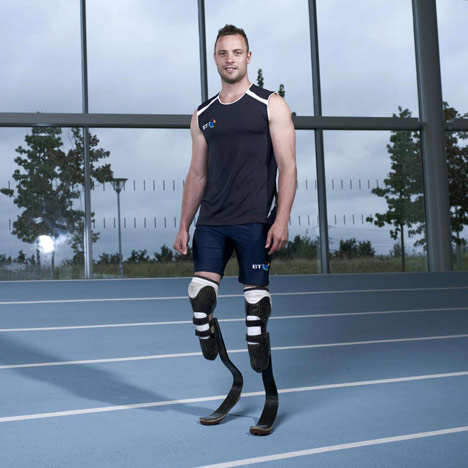
Developed by Icelandic company Össur, the blades caused controversy last week when "blade runner" Oscar Pistorius (above) was beaten in the T44 200m by Alan Oliveira. Pistorius later claimed the Brazilian had started using longer blades, giving him an unfair advantage.
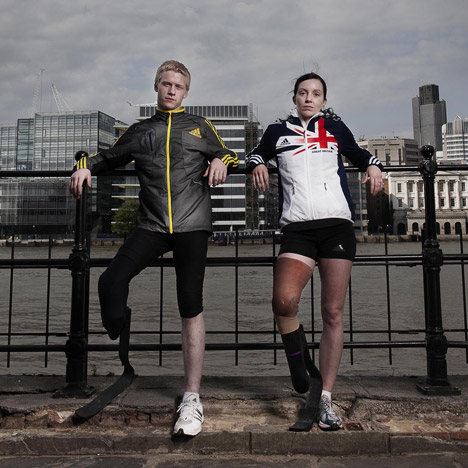
The blades were again in the spotlight last night, when Jonnie Peacock (above, left), the British single amputee, beat both Pistorius and Oliveira in the T44 100m final with a time of 10.90 seconds.
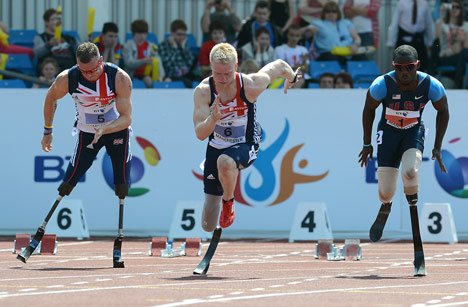
Pistorius uses Ossur blades customised with Nike Spike Pads, which are attached with contact cement - read more about them in our previous story.
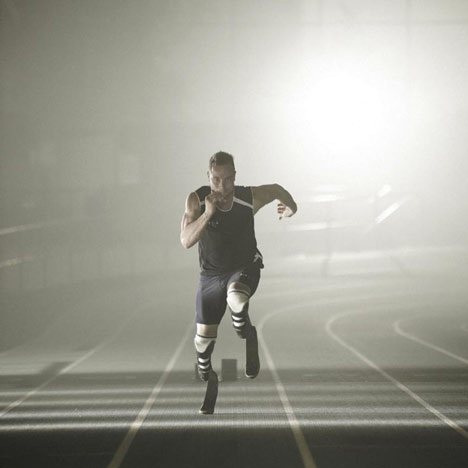
Flex-Foot Cheetah blades are so named because they replicate the running movements of the big cat's hind legs, which "reach out to paw at the ground while the large thigh muscles pull the body forward", Össur's website explains.
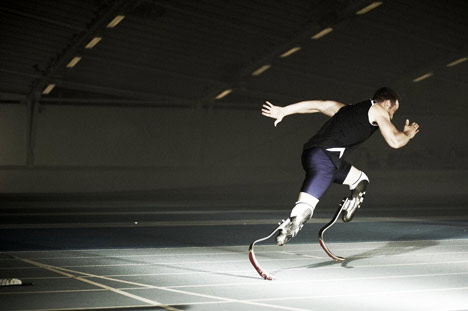
The specialist prosthetics are used by single or double amputees who attach the blades to the socket that fits around their limbs, for activities from light jogging to elite sprinting.
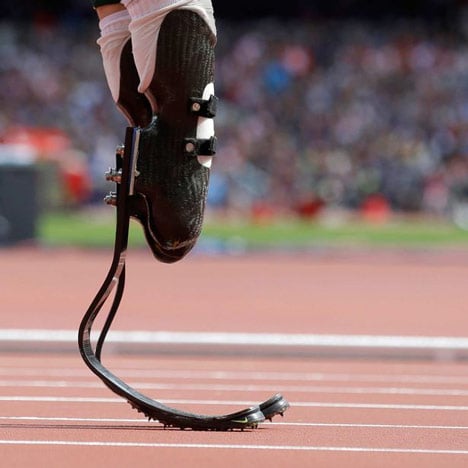
Above image by Anja Niedringhaus
All Images are by Channel 4 unless otherwise stated.
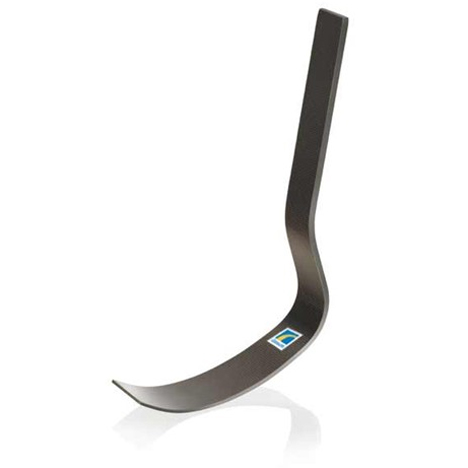
Above image by Össur
See all our stories about design for Paralympic athletes here, and all our stories about the London 2012 Olympics here.